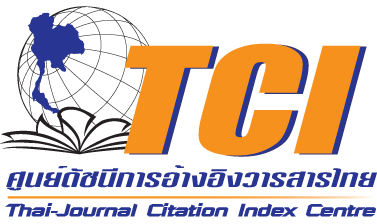A Study of Parental Bonding of Training Preceptors in Thailand
Keywords:
Parental Bonding, Mother Care and Mother Protection, Father Care and Protection, Training PreceptorsAbstract
In Thailand, a country heavily influenced by collectivist cultural beliefs, this study examines the relationship between preceptors' mentoring approaches and parental bonding experiences. This study emphasizes how early familial relationships shape adult mentors' professional behaviours and relational dynamics, drawing on attachment theory and its expansions. A sample of 100 education program participants in Thailand's Ongkharak District participated in the mixed-methods study, including qualitative and quantitative evaluations of mentoring practices using the Parental Bonding Instrument (PBI). The results show a strong correlation between preceptor mentoring practices and parental attachment types, divided into mothers' and fathers' caring and protection aspects. Fathers exhibited inclinations towards affectionless control, but mothers were primarily linked to affectionate constraint styles, which prioritized protective and caring characteristics. Variables like gender, family type (joint vs. nuclear), location (rural vs. urban), and parental educational background also influenced these trends. Stronger parental ties were found in rural and collectivist environments than in urban ones, underscoring the impact of culture on attachment patterns. The study fills in knowledge gaps in how mentorship is influenced by parental ties, especially in non-Western settings, and provides culturally appropriate insights for professional growth.
References
Abbasi M, Emadian O, Abbasi G. (2022) Effectiveness of video-based attachment-based education on parental bonding of children with behavioral disorders. Journal of Pediatric Nursing, 8 (3), 37-46.
Abbaspour, A., Bahreini, M., Akaberian, S., & Mirzaei, K. (2020). Parental bonding styles in schizophrenia, depressive and bipolar patients: a comparative study. https://doi.org/10.21203/rs.3.rs-121604/v1.
Ainsworth, M. D. S. (1989). Attachments beyond infancy. American Psychologist, 44(4), 709–716.
Ainsworth, M. D. S., Blehar, M. C., Waters, E., & Wall, S. (1978). Patterns of attachment: A psychological study of the strange situation. US: Lawrence Erlbaum Associates.
Bowlby, J. (1969). Attachment and loss: Vol. 1. Attachment. US: Basic Books.
Bowlby, J. (1982). Attachment and loss: Vol. 1. Attachment (2nd ed.). US: Basic Books.
Bowlby, J. (1988). A secure base: Parent-child attachment and how it shapes individual development. US: Basic Books.
Chang, L., Schwartz, D., Dodge, K. A., & McBride-Chang, C. (2011). Harsh parenting about child emotion regulation and aggression. Journal of Family Psychology, 27(2), 123-133.
Darling-Hammond, L. (2006). Powerful teacher education: Lessons from exemplary programs. US: Wiley.
Desai, S., & Alva, S. (1998). Maternal education and child health: Is there a kind of causality? Demography, 35(1), 71-81.
Hofstede, G. (2001). Culture's consequences: Comparing values, behaviours, institutions, and organizations across nations (2nd ed.). US: Sage Publications.
Hong, S., & Yoon, J. (2021). The impact of structured training programs on preceptors’ teaching behaviors and confidence: A systematic review. Journal of Nursing Education, 60(4), 215-223.
Kaniaru, N. (2016). Preceptor-student partnership in clinical nursing education: A framework for quality improvement. International Journal of Nursing Studies, 53(2), 56-64.
Kim, Y.M., Kols, A., and Park, H. (2016). Parental education and its impact on child-rearing across the globe. Parenting Science, 5(1), 43-60.
Knott, K., Henderson, A., & Bamford-Wade, A. (2022). Challenges in preceptorship: Time constraints and support systems in healthcare education. Nurse Education Today, 117, 105011. https://doi.org/10.1016/j.nedt.2022.105011
Li, H., Tang, Y., & Pang, Y. (2020). Role of preceptors in mentoring nursing students: A systematic review and meta-analysis. Nurse Education Today, 85, 104259.
National Council for Accreditation of Teacher Education. (2013). Standards for Professional Development Schools. n.p.
O'Sullivan, R., Carter, M., & McKenna, L. (2020). Developing preceptor programs through a continuing professional development lens: A mixed-methods study. Nurse Education in Practice, 42, 102682
Parker, G., Tupling, H., & Brown, L. B. (1979). A parental bonding instrument. British Journal of Medical Psychology, 52(1), 1–10.
Rikhye, K., Tyano, S., Friedman, A., & Laor, N. (2008). Parental bonding and child development. International Journal of Early Childhood, 40(3), 211-227.
Surcinelli, P., Montebarocci, O., Giovagnoli, S. (2025). Knowledge on Trauma, Adverse Childhood Experiences, and Parental Bonding in a Sample of Italian Teachers. International Journal of Psychological Science, 5(1), 1-7
Varghese, S. (2023). Addressing the challenges of preceptorship in healthcare: An integrative review. Journal of Health Professions Education, 9(1), 34-47.
Williams, T., Robinson, J., & Walsh, K. (2021). Innovations in preceptor training: Preferences for diverse formats and platforms. Nursing Leadership, 34(3), 11-20.
Yamaoka, Y., Suzuki, S. & Nishimoto, A. (2016). Parental participation in education – a rural-urban comparison in East Asia. Educational Research, 58(4), 395-408.







